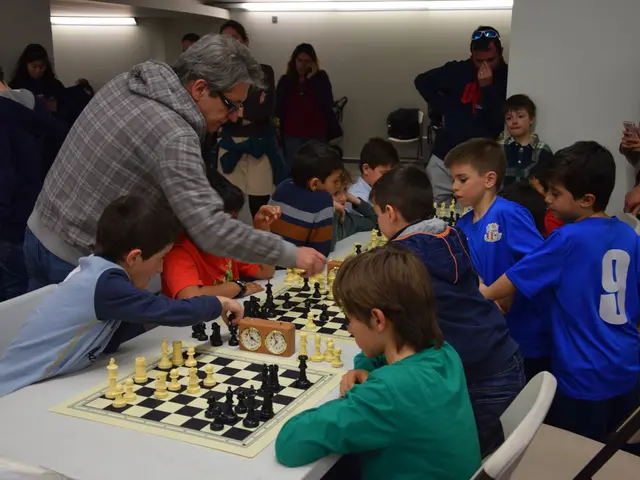Hannover 96's Boss Speaks, but Secrets Persist
In the world of professional soccer, the voting behavior of key figures can shake things up. This is certainly true for Martin Kind, the influential president of Hannover 96, who has been keeping a secret related to the German Football League (DFL) investor deal.
Recently, Kind held a conversation with the "Neue Presse" in Hanover, confirming the receipt of a statement to Hannover 96 e.V., a parent club dominated by Kind's opponents. However, he declined to reveal whether his vote was a "yes" or a "no" in the DFL general meeting, citing the secrecy of the ballot. "I answered that, it was a secret ballot - and I'm sticking to it," the 79-year-old businessman declared, adhering to the rules of the DFL general meeting.
The vote on Monday saw the DFL governing body approve the entry of a strategic partner with the required two-thirds majority, tallying 24 votes in favor and 10 against, with 2 abstentions. Given that twelve of the latter clubs publicly announced their voting behavior, the public may infer that Kind voted in favor of the 96ers. Kind merely stated to Bild newspaper, "Nobody knows whether the clubs that are now saying they voted no truly did so."
The potential ramifications of Kind's approval, should it come to fruition, hold significant weight. Firstly, if Hannover 96's parent club had directed Kind to vote against the strategic partner's entry, his vote in favor would further hint at the potential erosion of the 50+1 rule at Hannover 96. The e.V. management had attempted to remove Kind as professional managing director last year, only to be rebuffed in two subsequent court proceedings.
Secondly, Kind's defiance of the parent club's instructions could indicate a shift in the enforcement of the 50+1 rule, a rule that requires the parent club to maintain a majority of voting rights even if the professional division has been spun off into a corporation.
The DFL management views Kind's vote as an internal concern for Hannover 96, while the e.V. management accuses the DFL of failing to enforce its own 50+1 rule, citing Kind's reported acute disregard for the e.V.'s right to issue instructions.
Further Insights
The debate surrounding the 50+1 rule has long been a contentious issue in German professional soccer. In 2009, Kind proposed a motion to alter the 50+1 rule, which was rejected by 32 out of 36 clubs in the DFL. Despite Kind's stance, the enactment of the 50+1 rule ensures that Hannover 96 and other clubs maintain membership control, with the parent club possessing a majority of voting rights. Regardless of Kind's voting behavior, the rule remains steadfast in its application.
International inquiries into the 50+1 rule suggest that it may be in breach of EU competition law. Critics argue that the rule restricts clubs' financial stability and competitiveness by limiting the ability to attract large-scale investment. However, supporters of the 50+1 rule argue that it protects the club's members and maintains a democratic FIFA club governance structure.
As the debate continues, it remains to be seen whether Kind's potential defiance of his parent club's instructions will result in significant challenges to the 50+1 rule at Hannover 96 or in the German Football League as a whole.








